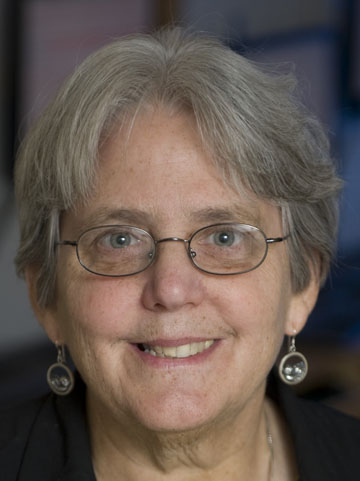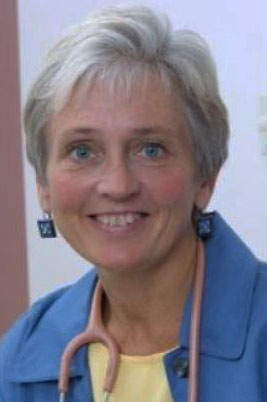Representing scores of scientists who study sleep’s role in the health and welfare of children, we need to be clear: Current expert recommendations for the sleep needs of children may not be perfect or immutable, but they are based on sound and rigorous science. For the sake of children whose parents, pediatricians and teachers may have seen recent media reports on two papers that call this into question, we’re compelled to offer the context of what decades of research has produced.

Perhaps the best service is to describe current recommendations for healthy child sleep and then to describe why the pediatric sleep community of health care professionals is concerned that parents and other stakeholders have become misinformed about how well research supports these recommendations.
First of all, abundant research shows that sleep is a vital component of physical and mental health in children and adolescents. That and other research provides solid scientific grounding for current recommendations. Experts acknowledge that there is some individual variability in sleep needs and therefore these recommendations are offered as guidelines for parents. They should be viewed in the context of potential signs of insufficient sleep in children and teens (difficulty waking in the morning, daytime sleepiness, sleeping longer on weekends and school vacations). Also, the recommendations for sleep amounts, such as those posted by the National Sleep Foundation, should always be applied in conjunction with other healthy sleep practices (such as regular bedtimes and wake times and bedtime routines).
As much as we care about children ourselves, we know we owe it to their parents to make (and defend) any recommendations on the basis of research, rather than intuition. We also need to be clear about the health effects of inadequate sleep, given the outward appearance that sleep cuts into “productive” time. Many lay people may not know that sleep is enormously productive time — especially for the developing brain — when the brain organizes itself and consolidates the day’s learning.
Here are the stakes. A large number of studies have shown associations between insufficient sleep and adverse health outcomes in teens and younger children. These include increased obesity risk, higher rates of motor vehicle accidents and accidental injuries, reduced cardiovascular health, and increased risk of depression and suicidal ideation. Many other studies have demonstrated the negative outcomes of sleep restriction and the positive impact of sleep extension on cognitive function of children and teens.

In a recent paper in the Eastern Economic Journal, two Brigham Young University economists dismiss such serious medical findings when they purport to determine an “optimal” amount of sleep for kids based on one question (“How many hours of sleep do you usually get a night?”) and a small set of standardized test scores. They report that that teens who got less sleep than experts recommend got better scores. We take issue with aspects of their methodology, but even if their paper were technically unassailable, as health professionals we would still be compelled to ask why a narrow set of test scores should be any parent’s benchmark for optimal sleep when so many vital health conditions are endangered by too little sleep.
Ultimately, the key issue is to define how much sleep kids and teens need. That’s long been a priority of our field because parents and health-care professionals have always worried about this question and have needed science to provide answers. What has changed over time has been the increasing quantity and quality of science we’ve been able to apply. Many rigorous pediatric sleep research studies have done much to help address the issue of optimal sleep duration and healthy sleep practices in children and adolescents. These studies include large epidemiologic approaches as well as rigorous field tests and in-lab brain wave monitoring. We’ve posted a selected list of these studies and those referenced above, as well as more co-signers to this essay, on our Web site: www.sleepforscience.org.
For all these reasons, we feel we should put in context a recent paper in Pediatrics that gained substantial and unduly credulous media attention. By looking at historical recommendations for sleep and measured sleep durations, the authors claimed that “there is almost no empirical evidence for the optimal sleep duration for children” and that “no matter how much sleep children are getting, it has always been assumed that they need more.”
A careful look at the paper shows that almost all of their findings are driven by data in infants, for whom recommendations around the turn of the last century were hugely different from those around the turn of this century. Meanwhile, the sleep recommendations at other ages are pretty much on par across the century. Fundamentally by ignoring many strong studies that provide a quantitative basis for current sleep recommendations, the authors do a serious disservice to parents, pediatricians, educators and, ultimately, to children.
The scientific literature shows that children and adolescents experience better learning and academic success and greater physical and mental health when their sleep is protected and supported to levels recommended by a consensus of experts, such as those posted on the National Sleep Foundation website. Our hope is that by understanding the scientific record and context beyond these two recent splashes in the literature, the pediatric sleep community’s service to parents and pediatricians can be restored.
Mary A. Carskadon is professor of psychiatry and human behavior at the Warren Alpert Medical School of Brown University and director of director of chronobiology and sleep research the Emma Pendleton Bradley Hospital. She is a fellow of the American Association for the Advancement of Science. Dr. Judith Owens is director of sleep medicine at Children’s National Medical Center in Washington, D.C.
